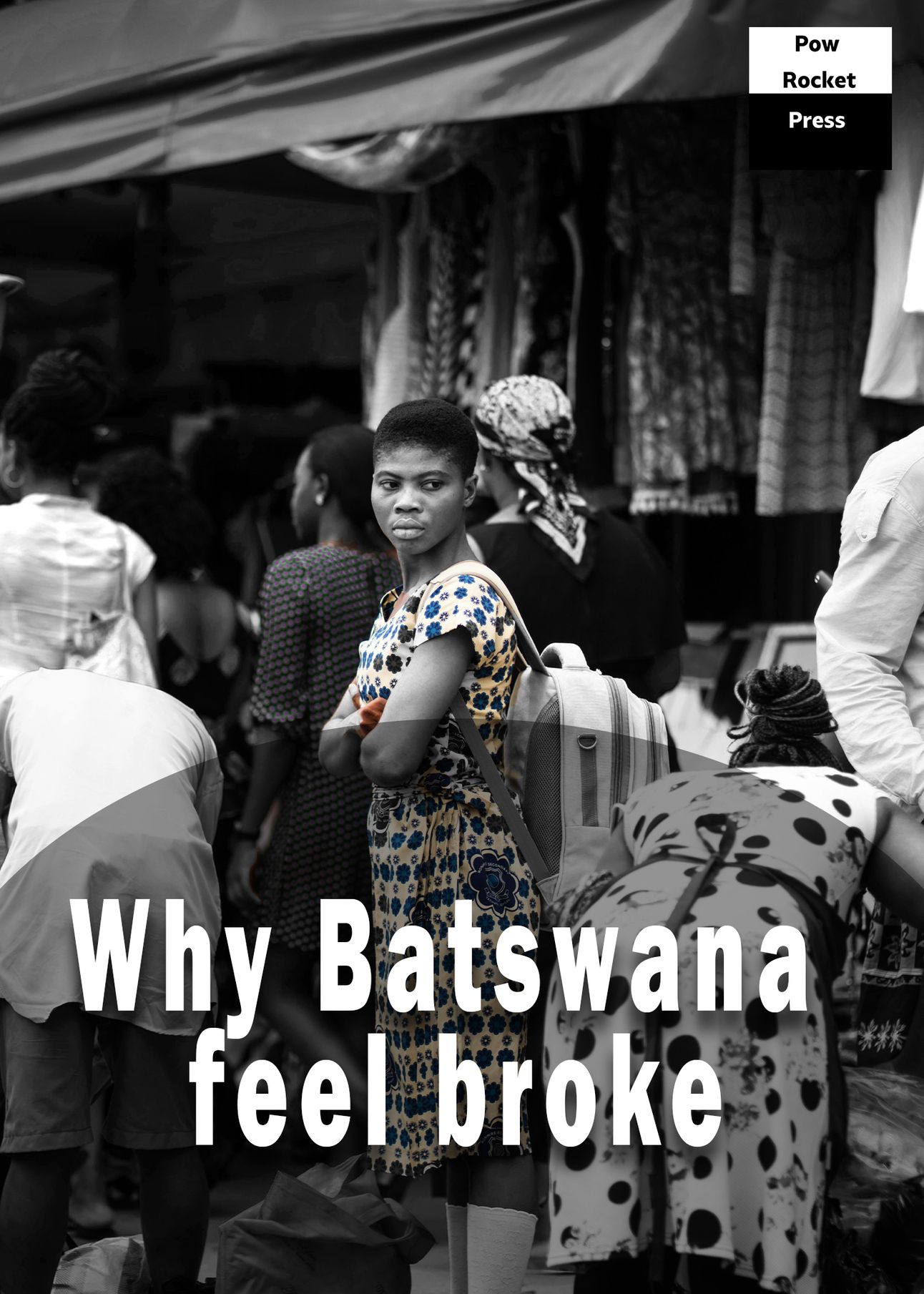
Table of Contents
Good morning 😃🌞☀️, let’s get into it
Why do we feel broke, especially business people well it’s a combination of economic factors.
Why we feel broke
Declining Incomes Amid Low Inflation
Although Botswana’s inflation rate has remained relatively low—averaging 2.8% in 2024 and rising to 2.8% in March 2025 —this hasn’t translated into increased purchasing power for consumers. In fact, average cash earnings in the formal sector fell by 7.1% between Q3 2023 and Q1 2024, with sectors like retail, manufacturing, and hospitality being the hardest hit. This decline in income has led to reduced consumer spending, affecting small businesses that rely on local demand .
High Unemployment Rates
Unemployment remains a significant issue, with the overall rate at 27.6% and youth unemployment at 38.2% as of early 2024 . High unemployment limits disposable income and consumer spending, further impacting small businesses.
Economic Dependence on Diamonds
Botswana’s economy is heavily reliant on diamond exports, which constitute over 80% of its export revenue. A downturn in global diamond demand led to an economic contraction in 2023. Although there are expectations of a rebound, the economy is still operating below full capacity, limiting growth opportunities for small businesses .
Political Transition and Economic Uncertainty
In a significant political shift, the ruling Botswana Democratic Party (BDP) lost power after nearly six decades, with the opposition Umbrella for Democratic Change (UDC) taking over in late 2024. While the new government has pledged economic diversification, the transition period has introduced uncertainty, potentially affecting investor confidence and economic stability .
Challenges Facing Small Businesses
Local small businesses face several structural challenges:
Limited Access to Capital: Difficulty in securing funding hampers growth and scalability.
Overregulation: Complex regulatory requirements can be burdensome for small enterprises.
Market Saturation: A small domestic market limits expansion opportunities.
Lack of Innovation: Many businesses operate in “survival mode,” focusing on short-term gains rather than long-term sustainability .
Where is the money going and how can entrepreneurs meet the challenges
Batswana are currently grappling with financial strain, and several factors contribute to this situation.
Where Is the Money Going?
1. Rising Cost of Living and Debt Obligations
Despite a relatively low inflation rate, many Batswana are experiencing decreased purchasing power. A significant portion of household income is now directed towards essential expenses such as housing, food, and transportation. Additionally, debt obligations are consuming a larger share of income, with over a third of consumers expecting to be unable to pay at least one of their current bills or loans in full.
2. Surge in Gambling Expenditures
Gambling has seen a notable increase in Botswana. In March 2025 alone, Batswana placed bets totaling P150 million, with only 40% of this amount going through licensed operators. Platforms like Betway have quickly gained popularity, recording over P180,000 in payouts within their first six weeks of operation.
3. Alcohol Consumption
Alcoholic beverages constitute a significant portion of household spending. By 2028, it’s projected that households will spend BWP1.6 billion (USD113 million) on alcoholic drinks, driven mainly by stable beer consumption.
How Can Small Businesses Innovate and Adapt?
1. Embrace Technological Solutions
Adopting affordable technologies can streamline operations and expand market reach. For instance, utilizing cloud-based accounting software or e-commerce platforms can enhance efficiency and customer access.
2. Foster a Culture of Innovation
Encouraging creativity and experimentation within the organization can lead to unique products or services that differentiate the business in the market. Regular brainstorming sessions and innovation-focused workshops can be beneficial.
3. Leverage Government and Private Sector Support
Engaging with initiatives like the Citizen Entrepreneurial Development Agency (CEDA) can provide access to funding and resources. Additionally, participating in events such as Innovation Botswana Day offers networking opportunities and insights into digital infrastructure advancements.
4. Focus on Customer-Centric Strategies
Understanding customer needs and preferences is crucial. Investing in market research and gathering customer feedback can inform product development and service delivery improvements.
5. Collaborate with Educational Institutions
Partnerships with universities and research institutions can provide access to expertise, research facilities, and young talent, fostering innovation and development.
By addressing these areas, small businesses in Botswana can navigate current economic challenges and position themselves for sustainable growth.
Source: Mmegi online, Trading economics, Reuters, The Times, Reddit, Bank of Botswana, Mmegi, Statsbots.Org, newsroom.transunionafrica.com, Semrush, Fitch Solutions, Botswana Entreprenuers Magazine, Business Tech Africa, Botswanayouth, Spectator, Elibrary.lmf
